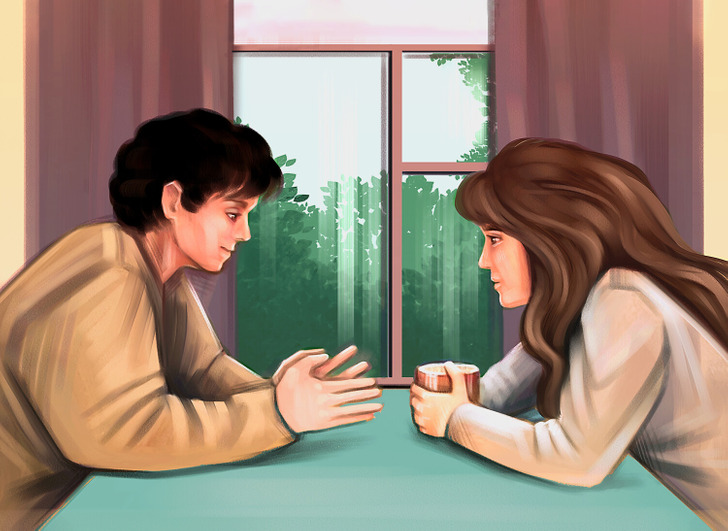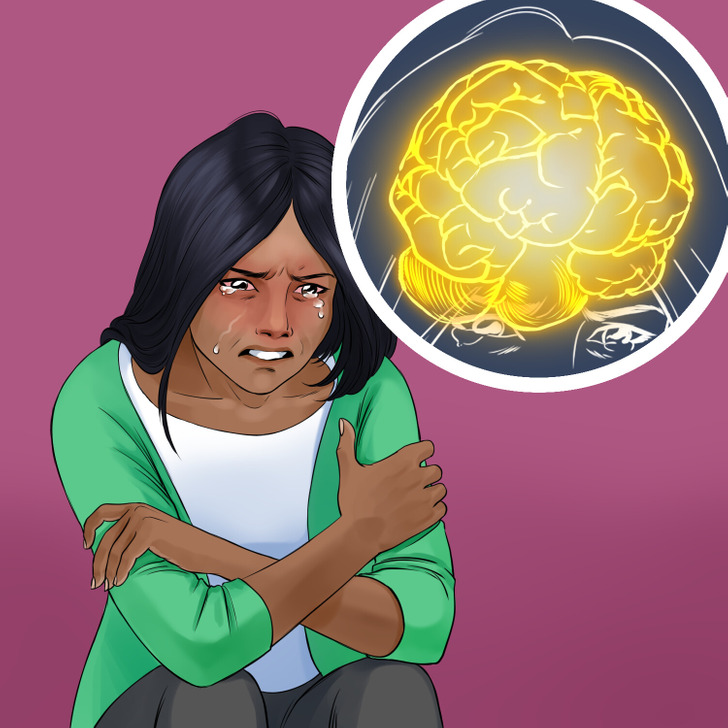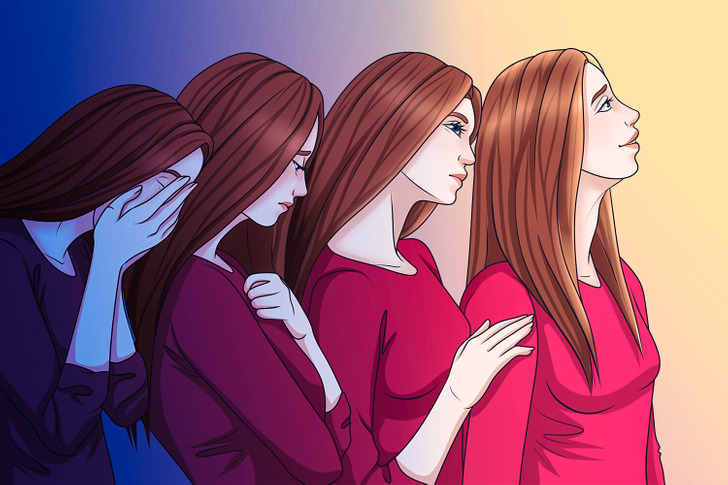قلب من مال تو . تمام دردهای تو مال من !
15+ Heartfelt Grief Quotes That Heal the Soul
Grief, an inescapable part of the human experience, is a journey filled with profound emotions: sadness, anger, emptiness, and longing. While time ultimately heals all wounds, navigating the initial stages of grief can feel overwhelming and isolating. In these moments, seeking solace in comforting words can offer a sense of understanding and shared experience. This article curates 15+ sincere grief quotes from renowned authors, poets, and wise souls, each offering a unique perspective on loss and the path to healing.

These quotes aim to:
- Validate your feelings: Acknowledge the legitimacy of your grief and the various emotions you may be experiencing.
- Offer solace and comfort: Provide a sense of understanding and shared experience during a difficult time.
- Inspire hope and resilience: Encourage you to find strength and move forward through the healing process.
1. «Grief is not a problem to be solved or resolved. Rather, it’s a process to be tended and lived through, in whatever form and however long it may take.» — Jane E. Brody

This first one of the list of grief quotes emphasizes that grief is not a linear process with a quick fix. It’s a journey with its own ups and downs, and acknowledging this can help you navigate your emotions without feeling pressured to «get over it» quickly.
2. «What we have once enjoyed deeply, we can never lose. All that we love deeply becomes a part of us.» ― Helen Keller

While the absence of a loved one can’t be filled, the lessons learned from the relationship and the positive memories remain. This quote encourages focusing on the growth and gratitude gained from the bond.
3. «I will not say: do not weep; for not all tears are an evil.» ― J.R.R. Tolkien

One of these grief quotes acknowledges that grief is a natural response to loss and that tears are not a sign of weakness. It suggests that some forms of crying can be cathartic and even necessary. Sometimes, crying is the only way to untangle the knots within us. It’s a sacred act—an offering to our own hearts.
Tears are the language of our souls. They flow freely when words fail us. Shedding tears doesn’t diminish our strength; it amplifies our vulnerability. In those quiet moments when tears escape, we glimpse our own fragility. It’s a paradox: vulnerability is our greatest strength.
4. «Don’t grieve. Anything you lose comes round in another form.» ― Rumi

At its core, this quote offers solace to those experiencing loss and heartache. When we lose something—a person, a dream, or an opportunity—it feels like an irrevocable void. Grief settles in, and we mourn what’s gone. Rumi’s wisdom invites us to shift our perspective. Instead of dwelling on the absence, we’re encouraged to recognize that loss is not an endpoint but a part of life’s cyclical nature.
Imagine life as a cosmic dance. Things waltz in and out, changing partners. Nothing truly disappears; it merely changes form. The tree sheds leaves, but they nourish the soil. The river evaporates, becomes clouds, and then rains down again. Birth, death, rebirth—it’s the eternal rhythm.
5. «You will lose someone you can’t live without, and your heart will be badly broken, and the bad news is that you never completely get over the loss of your beloved. But this is also the good news.» ― Anne Lamott

Lamott’s poignant quote describes the enduring impact of grief. It acknowledges that the pain of losing a loved one never truly disappears, but becomes a part of who we are. The broken heart is a metaphor for the permanent scar left by loss, but also a reminder of the love that remains. Learning to «dance with the limp» signifies how we adapt to living with grief, carrying the memory of the loved one while moving forward.
She continues, saying, «they live forever in your broken heart that doesn’t seal back up. And you come through. It’s like having a broken leg that never heals perfectly—that still hurts when the weather gets cold, but you learn to dance with the limp.»
6. «Tears shed for another person are not a sign of weakness. They are a sign of a pure heart.» ― José N. Harris

This quote by Harris elevates the act of crying for someone else. It suggests that tears shed out of empathy and compassion are a sign of emotional maturity and a capacity for deep connection. Crying for another can be a way of expressing solidarity and sharing their burden.
7. «They say time heals all wounds, but that presumes the source of the grief is finite.» ― Cassandra Clare

Clare’s quote challenges a common platitude about grief. It suggests that some losses, particularly those involving profound emotional attachments, leave a permanent mark. The intensity of grief may lessen over time, but the underlying ache for what is lost might never fully vanish. This perspective acknowledges the complexity of grief and the possibility of carrying it throughout life.
8. «The pleasure of remembering had been taken from me, because there was no longer anyone to remember with. It felt like losing your co-rememberer meant losing the memory itself, as if the things we’d done were less real and important than they had been hours before.» ― John Green

Green’s quote explores the link between memory and grief. It suggests that shared memories can be a source of comfort and connection. Losing someone can feel like losing a part of those memories, questioning their validity and diminishing the joy they once brought. This highlights the social nature of memory and how it can be anchored in shared experiences.
9. «No one ever told me that grief felt so like fear.» ― C.S. Lewis

Lewis’s raw and honest quote captures the overwhelming nature of grief. He compares it to fear, highlighting the disorientation, anxiety, and sense of impending doom that can accompany loss. Grief can be paralyzing and rob us of a sense of safety and control.
10. «Give sorrow words; the grief that does not speak knits up the o-er wrought heart and bids it break.» ― William Shakespeare

This line from Shakespeare’s Macbeth underscores the importance of expressing grief. «O’er wrought» suggests a heart already strained by emotional burdens. Bottling up emotions can be a recipe for disaster. The «grief that does not speak» can fester and grow, potentially leading to a more severe emotional breakdown later.
Shakespeare advocates for finding healthy outlets for your sorrow, whether it be through talking to a trusted friend, journaling, or creative expression. By giving voice to your grief, you can begin to process it and move towards healing.
11. "It’s so curious: one can resist tears and ’behave’ very well in the hardest hours of grief. But then someone makes you a friendly sign behind a window, or one notices that a flower that was in bud only yesterday has suddenly blossomed, or a letter slips from a drawer... and everything collapses."― Colette

Colette’s insightful quote explores the unpredictable nature of grief. We may be strong and stoic during the initial throes of loss, putting on a brave face and trying to maintain a sense of normalcy. However, grief can be a hidden current, waiting for the right trigger to erupt.
A seemingly insignificant detail, like a friendly gesture from a stranger, the unexpected beauty of a blooming flower, or a cherished memento rediscovered, can act as a powerful emotional trigger. This highlights the deeply personal and unpredictable nature of grief. There is no one-size-fits-all timeline, and seemingly innocuous things can unleash a wave of sorrow.
12. «So it’s true, when all is said and done, grief is the price we pay for love.» ― E.A. Bucchianeri

E.A. Bucchianeri offers a bittersweet perspective on grief in Brushstrokes of a Gadfly. It suggests that the capacity for deep love inevitably comes with the potential for profound sorrow. The deeper and more meaningful the love, the greater the pain of losing that person or thing.
It’s a sobering reminder that love and grief are two sides of the same coin. You cannot fully experience the joy and fulfillment of love without also opening yourself up to the possibility of heartbreak and loss.
13. «In times of grief and sorrow I will hold you and rock you and take your grief and make it my own. When you cry I cry, and when you hurt I hurt. And together we will try to hold back the floods to tears and despair and make it through the potholed street of life.» ― Nicholas Sparks

This passage from The Notebook by Nicholas Sparks describes a powerful form of emotional support. It portrays a willingness to truly be there for someone in their grief, offering not just words but a deep sense of empathy and solidarity. The promise to «hold you and rock you» suggests a safe space for vulnerability and emotional release.
While «taking your grief and making it my own» might not be possible literally, it signifies a willingness to share the burden and offer unwavering support. Sharing the emotional load can make the grief feel less overwhelming and the journey through sorrow more bearable.
14. «Only people who are capable of loving strongly can also suffer great sorrow, but this same necessity of loving serves to counteract their grief and heals them.» ― Leo Tolstoy

Leo Tolstoy, in his wisdom, suggests a link between the capacity for love and the experience of grief. Those who have the courage to love deeply will also experience profound sorrow when they face loss. However, he offers a hopeful perspective.
The ability to love deeply also allows for a greater capacity for healing. The love you shared with the person you lost becomes a source of strength, and the memories you cherish can be a source of comfort as you move forward. While the pain of loss may never fully disappear, the love that remains can be a powerful healing force.
15. «Grief can be a burden, but also an anchor. You get used to the weight, how it holds you in place.» ― Sarah Dessen

This quote by Sarah Dessen offers a complex and insightful perspective on grief. It acknowledges the weight and burden that grief can carry. It can be a constant presence, draining your energy and making it difficult to move forward.
However, Dessen also suggests that grief can act as an anchor. It can be a source of stability during turbulent times, a reminder of the love you shared with the person you lost. Over time, you may learn to «get used to the weight,» not in a comfortable way, but in a way that allows you to function and carry on.
16. «It sucks that we miss people like that. You think you’ve accepted that someone is out of your life, that you’ve grieved, and it’s over, and then bam. One little thing, and you feel like you’ve lost that person all over again.» ― Rachel Hawkins

This grief quote by Rachel Hawkins captures the unpredictable nature of grief. It aligns with many other grief quotes by emphasizing that the process of grieving is not linear. There may be times when you feel like you’ve made significant progress, only to be blindsided by a wave of fresh sorrow triggered by a seemingly insignificant detail.
A familiar scent, a song, or a shared memory can resurface the pain of loss. This can be incredibly frustrating and discouraging, but it’s important to remember that grief is a journey, not a destination. There will be setbacks along the way, but these moments don’t negate the progress you’ve already made.
17. «Deep grief sometimes is almost like a specific location, a coordinate on a map of time. When you are standing in that forest of sorrow, you cannot imagine that you could ever find your way to a better place. But if someone can assure you that they themselves have stood in that same place, and now have moved on, sometimes this will bring hope.» ― Elizabeth Gilbert

This passage from Elizabeth Gilbert uses a powerful metaphor to describe the experience of deep grief. She compares it to a specific location, a «forest of sorrow.» When you’re in the midst of grief, it can feel like there’s no way out. The pain and despair feel all-encompassing, and it’s difficult to imagine ever feeling happy again.
However, Gilbert offers a glimmer of hope. She suggests that hearing the stories of others who have survived similar experiences can be a source of comfort and inspiration. Knowing that others have walked through that same «forest» and emerged on the other side can offer a sense of possibility and a reason to believe that healing is possible.
As we find solace in these heartfelt grief quotes, it’s crucial to acknowledge that life’s challenges often demand more than just a positive outlook. In our next exploration, we’ll unravel the complexities of why staying positive may not be the ultimate solution when facing a crisis.
Comments
Related Reads
Helen Hunt, 60, Stuns During Her Latest Appearance, and Her Lips Become the Center of Attention

Anne Hathaway Deemed Unrecognizable After Her Face Shocked Many in New Pics

People Online Noticed Brad Pitt’s New Partner Is a Spitting Image of Angelina Jolie

Keanu Reeves Finally Cuts His Long Hair, and His New Look Causes a Stir

“She Needs to Leave Her Face Alone,” Lady Gaga’s Latest Appearance Sparks Controversy

A Homeless Woman Receives a Full Makeover and Impresses the Whole World

I Spent Years Covering My Face With Makeup, Now I Want the Whole World to See It

Meg Ryan, 62, Is Praised for Finally Looking Her Age As She Stuns in Her Latest Appearance

Mom Showed Her Pre-Birth Colossal Baby Bump, And People Doubt If It’s Even Possible

10 People With Extraordinary Physical Features We Can’t Believe Actually Exist

I Refused to Attend My Son’s Wedding And Instead Spent the Day With His Ex-Wife

Kim Kardashian Is Trolled for Editing Her Recent Pic, and It’s Taking the Internet by Storm
